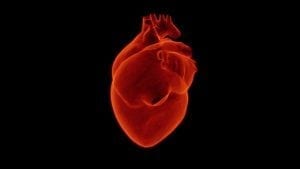Long QT Syndrome (LQTS)
What is long QT syndrome (LQTS)?
Long QT syndrome (LQTS) is a rare heart rhythm condition that can potentially cause fast, chaotic heartbeats, which in turn cause sudden fainting spells or seizures. However, in some cases, the heart can beat so erratically that is causes sudden death.
In long QT syndrome, the heart muscle takes longer than normal to recharge between beats, and this electrical disturbance is called a prolonged QT interval.
What causes long QT syndrome (LQTS)?
Long QT syndrome results from abnormalities in the heart’s electrical recharging system, but the heart’s structure is still normal.
A genetic mutation puts people at risk of developing this abnormality characteristic of long QT syndrome. In addition, certain medications such as antibiotics, antidepressants, and antihistamines, and medical conditions might cause long QT syndrome, and people with low potassium, magnesium, or calcium blood levels are also at a higher risk.
What are the symptoms of long QT syndrome (LQTS)?
Many people who have long QT syndrome do not experience any signs or symptoms of the disease. However, the most common symptoms of long QT syndrome are fainting and seizures. Sudden death can also occur if the heart does not return to its normal rhythm.
These signs and symptoms of long QT syndrome may occur during sleep or arousal from sleep, and most people who experience the signs and symptoms have their first episode by age 40.
How is long QT syndrome (LQTS) diagnosed?
Long QT syndrome often goes undiagnosed or is misdiagnosed as a seizure disorder, such as epilepsy. After a physical examination, a review of symptoms and medical and family history, a doctor will perform the following tests to confirm the diagnosis:
- Electrocardiogram (ECG)
- Holter monitor
- Event monitor
If a diagnosis is still not certain after these measures, a nonexercise (medication) stress test and genetic testing can help.
What are the available treatments for long QT syndrome (LQTS)?
Treatment for long QT syndrome is aimed at preventing the long QT heart from ever beating out of control or to prevent sudden death. The following options are available for this purpose:
- Beta blockers, such as Corgard and Inderal LA
- Mexiletine
- Potassium
- Fish oil
- Pacemaker or implantable cardioverter-defibrillator
- Left cardiac sympathetic denervation surgery
In addition to these medications or surgery, lifestyle changes such as staying well-hydrated, reducing loud or startling noises, and avoiding strenuous exercise can also reduce the changes of a long QT syndrome-related fainting spell.
Where can I find more information on long QT syndrome (LQTS)?
Long QT Syndrome (LQTS) Articles

SADS Foundation Will Meet with FDA in June on New Treatments for LQTS and CPVT


Patient Story: Young GAA Player’s Unexpected Death Raises Awareness for Long QT Syndrome

Athletes with Long QT Syndrome Can Safely Return To Sports


Sudden Cardiac Death in Adults: Long QT Syndrome and Pathogenic Variants Play a Role

How Stem Cells Can Treat Long QT Syndromes and Other Conditions




